Entertainment TV has recently seen a wave of fresh formats hitting the screen, and the streamers are taking notice of the genre too. Tim Dams reports
It’s all change in the world of entertainment.
Once the most predictable of genres – where Saturday night behemoths like the BBC’s Strictly and ITV’s The X Factor would slog it out year after year – it’s now experiencing plenty of innovation and change.
Many long runners, like Strictly, still reign supreme, but former staples like The X Factor are no longer (at least for now in the UK). Ever since The Masked Singer launched to acclaim in January 2020, there’s been a sense that audiences are up for change – and will reward risk-taking entertainment shows that challenge the status quo.
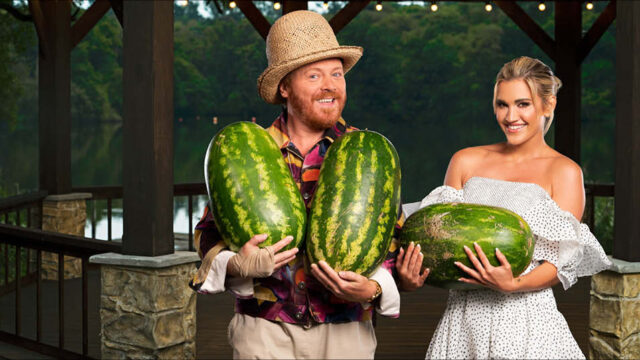
Fresh ideas
A slew of new shows prove that broadcasters are up for trying new things. ITV, for example, has launched shows such as Ant and Dec’s Limitless Win, Starstruck, Moneyball and Sitting on a Fortune this year – and has given each a recommission.
The BBC’s unscripted launches this year include I Can See Your Voice, Gordon Ramsay’s Future Food Stars and Freeze the Fear with Wim Hof. Coming up are shows such as a UK remake of That’s My Jam, NBC’s breakout comedy variety gameshow, hosted by Mo Gilligan, while Michael McIntyre returns with his Big Show and The Wheel.
Channel 4 is also focusing more heavily on entertainment since Taskmaster successfully transferred from Dave in 2020 and is expanding its slate with shows such as Jimmy Carr’s I Literally Just Told You and The Real Dirty Dancing. It has also piloted many shows from a set at dock10 in Salford, greenlighting series such as Quizness, One Question and Jon and Lucy’s Perfect Couples as a result.
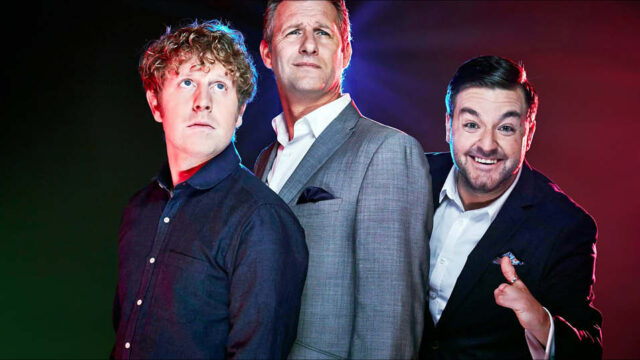
Notably, the streamers are beginning to push into the genre in a concerted way. Netflix has made a series of bold plays in unscripted, expanding its focus beyond its traditional scripted base. Buoyed by the success of Too Hot to Handle and The Circle, its UK team has greenlit a spate of unscripted shows including quiz The Cheat and entertainment formats Dance Monsters and Dance 100. “It is fair to say we are expanding our portfolio,” say Netflix directors of unscripted Ben Kelly and Daisy Lilley.
Katie Rawcliffe – Head of Entertainment Commissioning, ITV
What’s been working for you recently? It has been a really good start to the year. We tried quite a few new things. We launched Limitless Win; it’s good to see Ant and Dec in a different space and audiences seemed to really respond to it. Masked Singer came back, and so did Saturday Night Takeaway. We also launched Starstruck, which people really responded to – it was very warm and joyous. And then BGT came back to our screens – it was clearly missed massively by the audience.
What’s your focus at the moment? Saturday nights is still a massive destination for our viewers. It’s quite unique in terms of the linear schedule – people want to consume telly in that moment. So, we need shows that are live or as live. An example of something that worked brilliantly this year was Saturday Night Takeaway, which had an item called Ring My Doorbell. It brought the viewers right into the heart of the show because it’s live, it’s unpredictable, and people watching it can play – it breaks down the walls between the studio and people at home. The Masked Singer is also a brilliant ‘talk about’ show – all generations can sit together and play the guessing game. And the humour within the panel is fantastic. The big specials that feel like a real treat are really good for us too, like An Audience with Adele. The feedback was phenomenal in terms of social and press pickup. So, we’re looking for those moments where we can drop big live or as-live events in between the juggernaut series that we have.
What are you looking for now? We would love to land the next big reality format – another I’m A Celebrity because it’s event telly and cross generational. If you can draw people in with that narrative on linear it’s very exciting. Also, what’s the next generation of talent show? We’ve tried lots of studio shows and what we have works brilliantly – but what would the next version look like?
It’s easy to understand why platforms like Netflix are focusing on entertainment.
“Entertainment could become hugely important for the streamers,” says Jonno Richards, managing director of Talkback, which produces Too Hot to Handle and Cheat for Netflix. “It’s quicker to turn around than dramas and films and a break-out hit can get huge audiences and noise.”
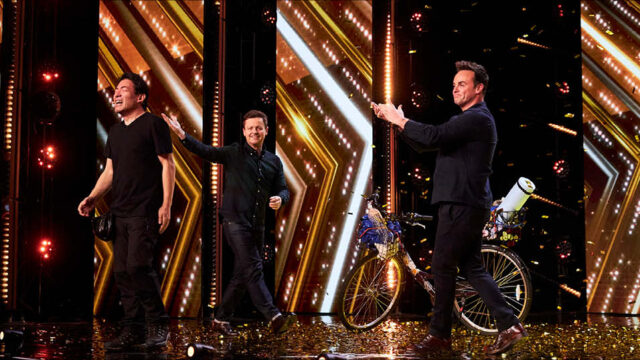
The figures prove his point. Audience demand for the entertainment genre remains high, despite continual industry and press focus on the booming drama genre. Four of the top 10 highest rating shows of 2021 were unscripted: 12.2 million tuned in for the Strictly final (based on seven-day consolidated figures from Barb), followed by 10.8m for the final of I’m A Celebrity Get Me Out of Here!, 9.9m for The Masked Singer and 9.3m for The Great British Bake Off.
Viewing figures are also strong on streaming platforms for the right kind of show. The BBC iPlayer’s most watched boxset in the first quarter of 2022 was The Apprentice, ahead of expensive dramas. The Circle, Is it Cake? and Love Is Blind have regularly featured in the top ten most watched shows globally on Netflix.
Kate Phillips – Director of Unscripted, BBC
What role does entertainment play at the BBC? During the pandemic, people came to the BBC for the news and for the government press briefings. But you want them to come for the light joyful feelings as well. Covid reminded people of the value of entertainment and shared viewing. We got lots of people coming to our shows in that first part of the pandemic, when we pulled off Strictly. It galvanised us to steam ahead with new entertainment development.
What’s been working for you? It’s been a combination: exciting new shows which are landing. We’ve seen growing consolidated numbers on those, which we’re looking at far more now than the overnights especially with young viewers coming to iPlayer. And also, nostalgia. People like comfort shows. During the pandemic, we launched Blankety Blank, and people seem to love it.
Anything else you’d pick out? We’ve done some big fact ent plays too. Gordon Ramsay’s Future Food Stars is really popular with a younger audience. Freeze the Fear with Wim Hof is wonderful – it’s an entertainment show, but it’s not an elimination / competition show. It’s a very different viewing experience. It can be moving, a bit shocking at times, and funny. Lee and Holly are very good and you’ve got this amazing character, Wim, at its heart. It feels like a different way of doing a celebrity challenge.
What are you looking for? Big, fact ent narrative-arc competition shows. The Apprentice did gangbusters when it came back this year. Also, Big Saturday night shows – we don’t get pitched those nearly enough, because they’re really hard to come up with. We like having fun, lower cost high volume shows to kick off Saturday nights – Hitlist has grown and grown, and we have Pointless Celebrities and Catchpoint. But we’re looking at more of those fun, high energy quiz shows. And dating is interesting. BBC3 has done well with Love In The Flesh. And we’re looking at a couple of other formats there for them.
At a time of spiralling drama budgets and when both broadcaster revenues are under pressure and streamer spending is under scrutiny, entertainment is also the place to go for a cost-effective way to win audiences.
Entertainment can appeal to a broad range of audiences too, making them attractive to broadcasters and streamers. For many viewers, it’s also a respite from the dark storylines that characterise so many premium dramas.
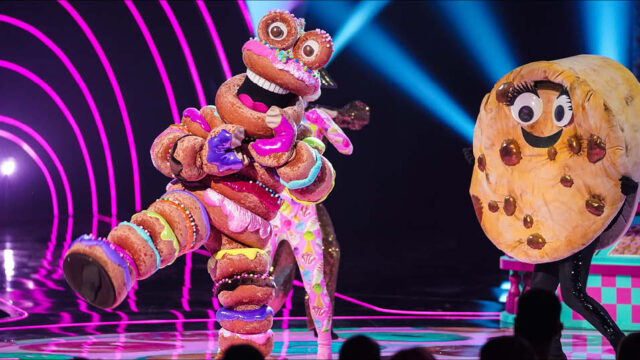
“Entertainment’s job is to provide escapism and joy for people at home, and to get everyone sitting watching telly together” says Amelia Brown, managing director of Britain’s Got Talent, I Can See Your Voice and Blankety Blank producer Thames.
Brown says that demand is high for the genre, both from traditional broadcasters and increasingly from streamers. “All the networks are saying, ‘We want to be pitched more stuff, and we want to be pitched bigger stuff.’”
Many say that big, live entertainment shows don’t fit with the on-demand streamer model. For Brown, that’s a challenge for indies to address. “It’s our job to reinvent the traditional format to fit the SVODs…it often just takes a small twist to a traditional format to make it work on any new platform.”
There are signs that platforms are preparing to experiment with live entertainment. All eyes will be on the US this autumn, when Disney moves its hit Dancing with the Stars series from its broadcast network ABC to its streaming platform Disney+.
Ben Kelly and Daisy Lilley – Directors of Unscripted, Netflix
What is working for Netflix in unscripted now? We like to look at everything but the way we tend to commission is to find shows that are familiar but that we can put a unique Netflix spin on. So we would say that’s probably the unifying theme across all our shows, for example,. Nailed It or Is it Cake? is our twist on a baking show, Too Hot to Handle and Dated and Related is our twist on dating shows, Dance Monsters and Dance 100 our twist on a dance entertainment format: it seems familiar but it’s looking at it through a different lens. We’re always keen on noisy social experiment reality plays like The Circle and more broad entertainment talent formats. And we have just announced a new quiz show called Cheat which we are excited about.
Why is Netflix doing more in the unscripted genre? We are relatively new in the unscripted journey at Netflix: we started commissioning in this field in 2017. There’s a wonderful freedom to commissioning at Netflix so we can really look at making what we think our viewers will love. We’re not bound by slots or quotas to fill so we don’t have a set number to hit every year. We look across the broad unscripted genre and judge everything on the merit of the idea, and if it’s strong and we can see it bringing joy to our members, we’ll commission it. It’s fair to say we are expanding our portfolio.
What kinds of shows are you looking for out of the UK? There is great production and development expertise here as well as a rich history of finding and generating global IP, so it’s natural that we will look to that expertise both for the hits in the UK and travelable hits, although great stories and ideas can come from anywhere. The great benefit of doing English language content is that UK shows have the potential to break out and be a success in the rest of the English-speaking world.
The move has widely been interpreted as Disney focusing on driving up subs for its streaming platform.
“It will be fascinating to see if that works,” says BBC head of unscripted Kate Phillips. “It could be a real game changer if the streamers do more of those type of shows.”
Phillips stresses that broadcast channels remain a “great platform” for entertainment at the BBC. “The channels are very much a shop window for iPlayer.” Saturday nights on BBC One remain focused around big linear shows like Strictly and Michael McIntyre’s Big Show. BBC Two has ‘quizzy Mondays’ with Only Connect, University Challenge and Mastermind performing strongly, while BBC One has ‘bizzy Thursdays’ with Dragon’s Den and The Apprentice.
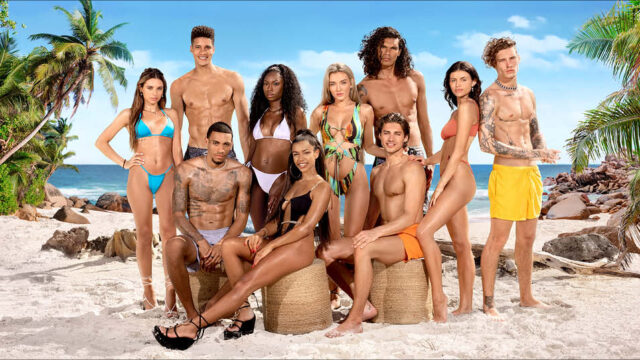
Reality shows with a hooky narrative like The Apprentice perform strongly on iPlayer, and they are doing well on other streaming platforms too. Phillips says The Apprentice almost doubled its viewing on iPlayer, and explains that “big fact ent narrative arc shows” are a key focus for the commissioning team. “The reasoning is that that iPlayer is just as important as the channels. So, when we are commissioning something, we look at whether it works on both linear and iPlayer.”
Reality is a focus at ITV too. “We would love to land the next big reality format,” says ITV head of entertainment commissioning Katie Rawcliffe, citing the cross-generational appeal of ‘event TV’ like I’m A Celebrity. Big Saturday night entertainment is also a major focus for Rawcliffe. “What’s going to be the next version of the talent show?” she asks. She says that historically they have been quite studio based, and now could be the time for something different. “We’re lucky, we’ve got a lot of great, big studio shows that are working – but we are starting to look more at the reality and talent space, maybe in a slightly different way.”
At Channel 4, Phil Harris says he and his team are commissioning more hours of entertainment – and from a broader range of suppliers than previously. He says that Taskmaster’s arrival at the channel is a “brilliant expression” of what C4’s entertainment is about – citing its warmth, mischief and off the wall nature. At the back of his mind is Channel 4’s Future4 strategy, its focus on digital growth. “When we feel good about a commission is when it feels broad yet distinctive, and it’s doing something slightly new – but not so new that it is going to completely scare off viewers from sampling it,” says Harris.
Phil Harris – Channel 4, Head of entertainment and Events
What’s been working well for you? The Last Leg has done brilliantly well. It’s a live take on the week and is a slight outlier because our other stuff is a bit more escapist. Taskmaster is doing really well, and on All4 too. People are enjoying shows where they can see that the contributors want to take part – there’s a joy and comedy in that. Dirty Dancing on E4 is another good example. Like Taskmaster, the stakes aren’t incredibly high, and the storytelling isn’t super competitive, so you see unlikely friendships and rivalries and surprising outcomes. Those sorts of things are resonating with viewers.
Key priorities now? Our priority is shows that speak to the Future4 strategy. Our biggest priority is a reinvention of entertainment. We feel good about a commission when it feels broad, yet distinctive, and it’s doing something slightly new – but it’s also not so new that it’s going to completely scare off viewers. I Literally Just Told You is a show that seems similar [like 8 Out of 10 Cats], but there’s a slight twist. We’ve just commissioned a panel show [Jon and Lucy’s Perfect Couples]. It’s about relationships and playing on that as a source of comedy. The stakes won’t be particularly high – every couple wants to think that they’re quite a good couple. But people gossip about other couples – there’s a resonance and a truth to that. Humour is key. We don’t really commission anything that doesn’t have some mischief to it.
Are you doing more entertainment? We’ve definitely got more hours: we’ve got a broader team in terms of numbers but also the taste palate. We’re now commissioning comedy and satire through to live events via slightly more reality. We recently announced two new reality shows Scared of the Dark and Tempting Fortune. It means we are working with far more suppliers and suppliers that we hadn’t worked with before from teams like Hello Mary.
A number of other forces are shaping the entertainment market. Nostalgia remains a big trend, with the likes of Blankety Blank performing strongly for the BBC. Demand for guessing games spiked after the success of The Masked Singer. And there is always an appetite for good quiz and game shows: Lee Mack’s The 1% Club is returning to ITV after a successful launch last year.
Behind the scenes, it’s tough for producers to crew up shows. Not only are there a lot of entertainment shows being made following pandemic lockdowns, but the buoyant drama genre is attracting those with transferrable skills like production managers and co-ordinators. Certain entertainment genres – notably reality – are also very busy. “The pool of experts in that world are in demand,” says Thames’ Brown.
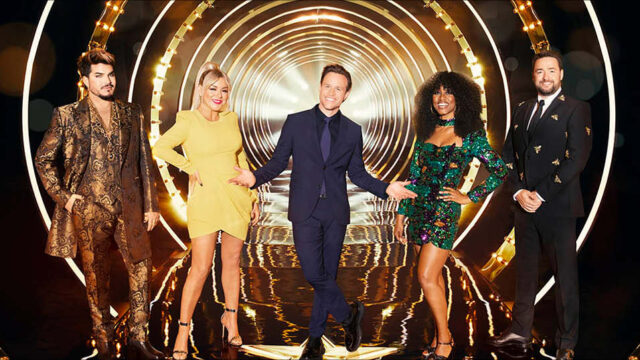
Many producers say that turnaround times for commissions are sometimes very short. “The hardest thing is when they want something quickly, for less money,” says Brown. “That is when you struggle with crew and when it becomes tough with making sure you have got the best cast.”
But the over-riding trend in entertainment is the breadth of demand for the genre, from both broadcasters and streamers. “It feels like the entrance of the streamers into entertainment unscripted has expanded the market,” says Talkback’s Richards. “We’ve now got streamers coming to us, specifically asking what quiz show or talent-led vehicles on the streamers looks like. Previously, they might only have been thinking about big reality shows.”
This feature first appeared in the Summer issue of Televisual Magazine
Jon Creamer
Share this story
















